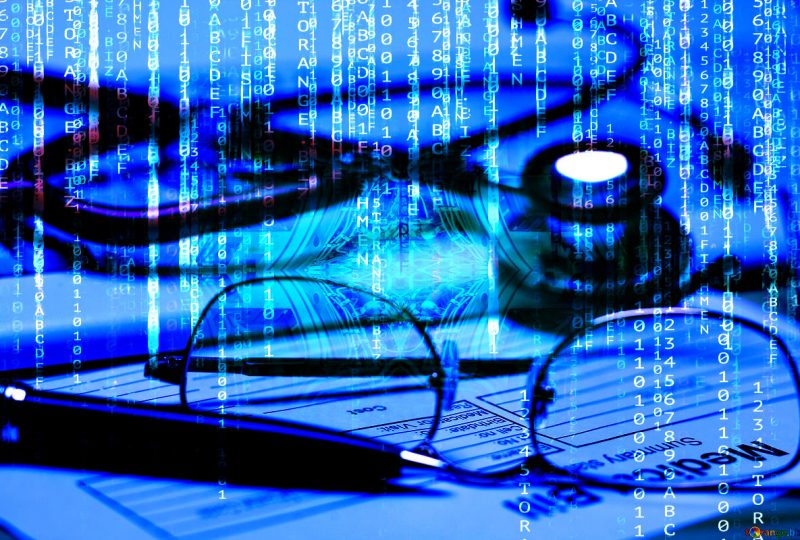Digital health: 5 apps that are revolutionizing healthcare
23 December 2019 | Written by Melissa D'Ambrosio
The world of medicine is changing and more and more technological tools allow a new approach to care.

Health is one of the most digitized topics online: according to data from a study conducted by Brain & Company, Italians conduct 4 billion searches for their state of health (symptoms, diseases, various treatments) on Google every year. However, this ease in using specific and detailed information often leads to false alarms and unfounded concerns. This is why promising technologies suggest the advent of a new type of health, which allows the individual to monitor his health in an autonomous, conscious and assisted way at all times of the day.
We know today that the first step to take care of ourselves are the prevention, that is the implementation of healthy and correct attitudes that avoid the excessive exposure to risk factors for the different pathologies. Preventing in a conscious way has never been within our reach as now.
Digital applications in health. The digital health market is worth around 25 billion today, boasts a 38% annual growth rate and offers a variety of solutions, even for everyone: wearable devices are an example, which allow to keep the basic vital parameters under control, or other valuable information such as oxygen saturation, heart rate, sleep quality.
But we have gone further and now the monitoring also happens through swallowable devices: an example is Proteus Digital Health, which helps the patient who has it need (in the case of mental illnesses, to cite a scope of application) to follow the prescribed therapy. It is a pill that contains a micro-sensor which, once swallowed, sends signals to a particular plaster placed on the patient’s skin which in turn transfers the information to the smartphone. The micro-sensor is then normally eliminated from the intestinal pathways.
The integration of these and other various functions with cloud computing technologies allows the creation of virtual medical records updated in real time and the immediate sharing of these with your doctor, other members of the family or friends.
5 tools to monitor your health. In the market, there are already devices, applications, artificial intelligence systems that are innovative and available to everyone that can be exploited to keep their health under control on a daily basis:
- Skin Vision: Skin Vision allows you to monitor the health of the skin, offering the possibility to shoot photos of nei or excoriations, which are sent to a team of specialist dermatologists. During the registration the app submits the user to some questions, from which it derives the type of skin and the likelihood of risk of developing melanoma.
- Quardio: it is a wireless tool with relative app that constantly monitors blood pressure, heart rate and of irregular beats. It can be integrated with Apple Watch, and this gives the possibility of sharing information with the doctor and eliminating one of the problems concerning health systems today: medical-patient communication.
- One drop: system designed to allow diabetics to keep under control and store the most important information about your blood sugar level over time. It keeps track of weight changes, can help the patient to define goals and offers the patient the possibility to join the community and receive suggestions from other patients.
- Da Vinci Salute: App that allow doctors and psychiatrists to solve problems that do not require physical contact. It is a solution that reduces costs and waiting times by offering a qualitative service.
- Apple Watch: in this case it is not an app but a very important interface that connects the different apps dedicated to health. It can be useful to remember to take a medicine, to make predictions about different diseases and to recommend specific medical checks.
Future involutions. The spread of these technologies can positively impact the future and improve the efficiency of health systems, lowering costs and bringing benefits both to the patient and to the doctor. A more conscious and accurate prevention, in fact, translates into a lower incidence of pathologies which, in turn, means a reduction in the costs of treatment and an increase in the general health of the population. Furthermore, the constant search for new technologies applicable to medicine, starting from the massive collection of data by artificial intelligence systems, will lead in the future to immediate and valid diagnoses and related equally efficient care.
And privacy? Massive data collection to be used to refine treatment and diagnosis through robots and AI systems leads to an ethical obstacle due to the privacy of such sensitive data. However, pursuing innovative and revolutionary paths is crucial if we want to improve our living and health conditions in a clear way. According to expert Roberto Ascione, CEO Healtware group, “we will have to come to terms”: “The impact of digital technologies on the entire health system is destined to be epochal and long-term.”



